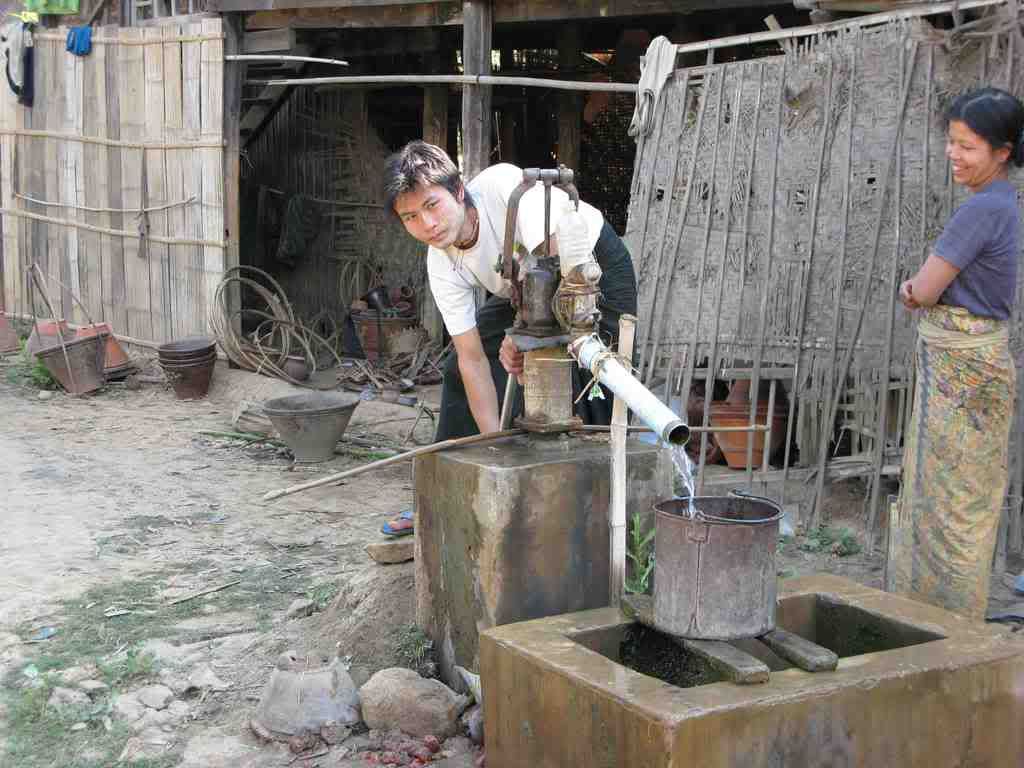 The cost of poor sanitation in developing countries is often overlooked or underestimated. The World Bank reported that Indonesia loses more than $6 billion per year to diseases transmitted by contaminated water and unsanitary practices. According to the WHO, Indonesia, with a total population of some 237 million, suffers 120 million cases of hygiene-related disease – and 50,000 fatalities – annually.
The cost of poor sanitation in developing countries is often overlooked or underestimated. The World Bank reported that Indonesia loses more than $6 billion per year to diseases transmitted by contaminated water and unsanitary practices. According to the WHO, Indonesia, with a total population of some 237 million, suffers 120 million cases of hygiene-related disease – and 50,000 fatalities – annually. These statistics should not be a surprise to anyone who has been following the eFoodAlert World Tour and Water Woes series. But this problem extends far beyond Indonesia's borders. BBC News reported today that the International Water Management Institute has found that untreated sewage is being used to irrigate urban crops in many areas of the developing world.
The IWMI has learned that 5.6 million farmers and their family members in the 53 cities included in their study irrigate using water containing raw sewage, industrial effluent or other untreated urban surface water. Untreated waters, which may contain pathogenic bacteria, pesticides, or other industrial chemicals, can transfer the contaminants to crops.
Today's World Tour is one more illustration of the consequences of poor sanitation and contaminated water.
Guinea Bissau
This African country has been struggling to contain an outbreak of cholera ever since flooding produced by heavy rains helped to spread the disease earlier this year. According to the latest report from Agence France Presse, the capital city of Bissau has accounted for 1,450 of the 1,700 cases so far.
UNICEF, which is already working with the government to disinfect water wells, has just contributed an additional US$600,000 to the country. The money is earmarked for training health agents and for a public health educational campaign.
India
Orissa, a state on India's east coast (Bay of Bengal), is the latest venue for an outbreak of diarrhea caused by drinking contaminated water. Two people are reported dead so far, and an unspecified number are ill in a remote village that has no access to clean drinking water. The outbreak may be due to cholera, but there is no way of knowing for sure, because doctors have been unable to access the village due to the poor condition of roads in the area.
Villagers in the state of Jharkhand also in eastern India, are in similar straits. At least 18 people have died from severe diarrhea, and more than 24 were still ill as of August 4th, the date of the most recent report.
Uganda
Eastern Uganda finally appears to be gaining the upper hand on its 5-month long cholera outbreak, according to New Vision Online. The epidemic killed 32 people and sickened at least 482. Unfortunately, the country is not yet out of the woods. Western Uganda now is experiencing an outbreak of what may be typhoid. Twenty-seven people have been stricken with the illness so far; nine have died.
Nepal
Dysentery has claim two lives in this Himalayan country recently. Details of the extent of the outbreak are scantly, but one doctor reported seeing an average of 10 dysentery patients at his clinic daily.
Sudan
Cholera is making its presence felt in the south of the country after heavy rains forced 250,000 people from their homes last month. At least 20 people have died, and an unknown number have been sickened. Cholera spreads rapidly in these types of situations, and the toll is likely to increase significantly before the outbreak can be brought under control.
Hong Kong (China)
Sixteen travelers to Thailand came down with symptoms of food poisoning after returning to Hong Kong. Twelve of the victims visited a hospital for treatment, but none were admitted. In a separate incident, 12 people complained of food poisoning symptoms after eating lunch on a boat trip on August 16th. The victims experienced abdominal pain, diarrhea, vomiting, nausea and fever.





No comments:
Post a Comment
Note: Only a member of this blog may post a comment.